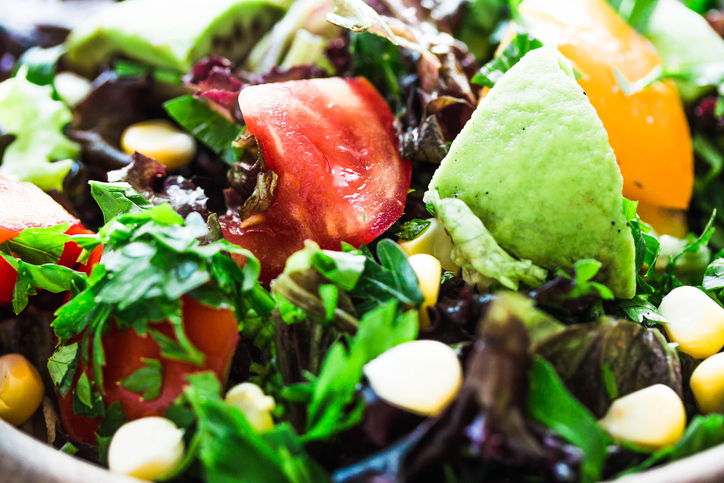 Thanks to documentaries such as “Black Fish,” “What the Health,” “Forks Over Knives,” and a host of other educating documentaries, you may have begun to rethink the ethical treatment of animals. You're probably also assessing the food in which you’re putting into your body.
Thanks to documentaries such as “Black Fish,” “What the Health,” “Forks Over Knives,” and a host of other educating documentaries, you may have begun to rethink the ethical treatment of animals. You're probably also assessing the food in which you’re putting into your body.
And after watching such documentaries, it makes perfect sense as to why you may be curious about living a non-carnivorous lifestyle. With so much knowledge available at our finger tips and with a drastic increase of vegan and vegetarian eateries across the world, it’s easier now more than ever, to cut back on eating meat. Not sure where to start? Here are four different lifestyles to choose from if you’re interested in living a meat-free life.
Pescatarian
Eating a pescatarian diet means you’re able to eat any type of fruit, vegetable, legume or grain, as well as fish. While pescatarians’ diet is a focus on that of a plant-based diet with the inclusion of fish, some pescatarians still consume dairy and eggs. Some benefits of this type of lifestyle includes meeting your need for B-complex vitamins and obtaining plenty of protein; a three-ounce raw Atlantic salmon fillet has 17 grams of protein. Some fish, including salmon, tuna and herring, provide healthy omega-3 fatty acids which help reduce the risk of developing high cholesterol, high blood pressure and heart problems.
READ: 10 Black-Owned Vegan & Vegetarian Spots You Should Know
Vegetarian
A person who identifies as a vegetarian abstains from consuming any type of meat including poultry, seafood, red meat and the flesh of any other animal. There are different versions of this type of diet that includes an ovo-lacto vegetarian in which this version of vegetarianism includes consumption of eggs and dairy; ovo-vegetarian - a person who eats eggs but not dairy; and lacto-vegetarian - a diet in which a person consumes dairy but not eggs. Depending on your beliefs, some vegetarians also refrain from by-products of animal slaughter. Some benefits of maintaining a vegetarian diet include decreasing your chances of developing kidney stones and lessening the risk of experiencing strokes, diabetes, obesity and cardiovascular disease.
Plant-Based
Very similar to a vegan diet, individuals who choose to live a plant-based lifestyle avoid meat, dairy, eggs, gelatin and processed foods such as white flour and refined sugar. People who follow this lifestyle eat unprocessed or minimally processed vegetables, fruit, nuts and seeds, legumes, beans and whole grains. To break the distinction between plant-based and veganism down a bit further, a vegan can eat Oreos, since in essence they are vegan, however, a person who follows a “plant-based” lifestyle may choose not to eat Oreos because it’s not a product that resembles it’s original plant form. Although a “plant-based” meal may be vegan by definition, a big difference between the two are a person who follows a plant-based diet is not necessarily a vegan which means they may consume only plant-based foods but may still wear or use products that are derived from animals. A plant-based diet can help with diabetes prevention and weight loss, improving heart health and skin health as well.
Vegan
Again, vegan and plant-based are strongly similar, except, being vegan is a philosophy devoted to animal rights that involves diets, ethics and politics. As a vegan, you not only eliminate animal food from your diet, but you also extend the elimination process across all aspects of your life. So, this means a vegan doesn’t use honey or beeswax because it’s derived from insects; any household goods, toiletries or beauty products or wear any type of clothing that derives from animals, such as leather, fur or silk if any of the products are tested on or derived from animals. Being a vegan can help you lose excess weight, lower your risk of heart disease and may protect again certain cancers.
There are different options to help start your journey to living a life that doesn’t include eating land-based animals and plenty of benefits associated with each lifestyle. If you’re interested in starting any of these lifestyles, consult with your doctor and research to determine which option is a better fit for you.









